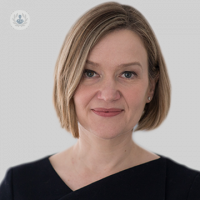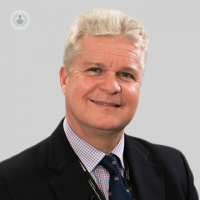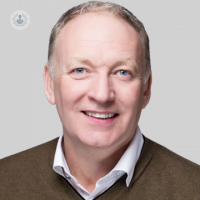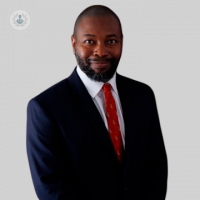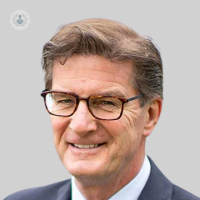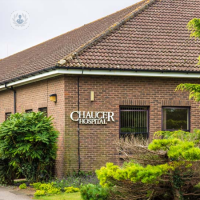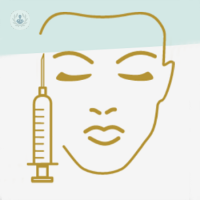What is salivary gland surgery?
The main salivary glands, those that generate and empty saliva in the mouth, consistent of three pairs:
- the submandibular glands
- the sublingual salivary glands
- the parotid glands.
Salivary gland surgery is responsible for removing any of these glands. Anaesthesia used during the procedure will depend on the gland that is removed: if it is from major salivary glands, such as the parotid gland, the procedure involves general anaesthesia, whereas if it is of minor salivary glands, local anaesthesia will be used.
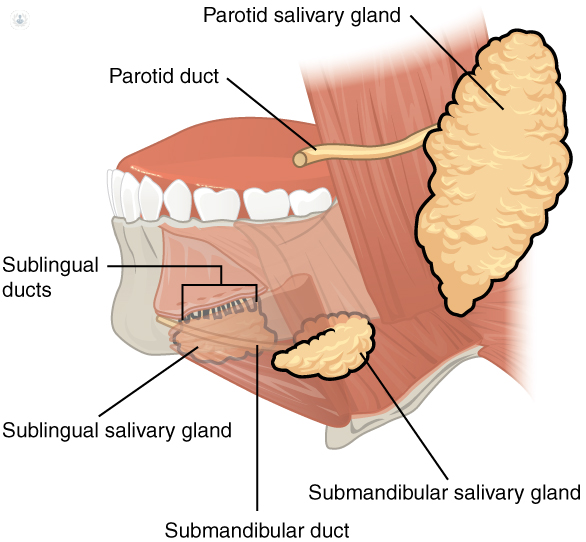
Why is salivary gland surgery performed?
Salivary gland surgery is usually performed to remove tumours that grow in these glands and analyse them. It is estimated that more than 70% of these tumours are benign (non-cancerous), but any lump that is detected must be analysed.
The salivary glands can also present other pathologies, including:
- sialolithiasis – obstruction and inflammation of the salivary glands due to the presence of calcium stones
- sialadenitis – infection of the salivary glands, which can be an effect of sialolithiasis, or be caused by a virus or bacteria.
What happens during salivary gland surgery?
There are several surgical techniques depending on the gland that needs intervention:
- Parotidectomy (removal of the parotid glands) – this can be superficial and is performed when the tumour is on the facial nerve. It usually removes the tumor without affecting the nerve, or total, which is carried out when the tumour surrounds or grows towards the facial nerve. In both cases, surgery consists of making a cut in front of the ear and down the neck to access the tumour and remove it.
- Submandibular sialoadenectomy: this consists in making an incision under the jawline to access the gland and extract it, sometimes along with the surrounding lymph nodes.
- Surgery of the sublingual glands: an incision is made through the mouth to extract a cyst called ranula.
- Surgery of the minor salivary glands: consists of making a cut in the area where the gland is located to access it and remove the tumor, the soft tissue and the area of affected bone.
In all surgeries, the area is closed with sutures once the affected tissue is removed. In some cases, it may be necessary to put temporary drains to remove fluids, such as saliva or blood.
Preparing for salivary gland surgery
Before the intervention, the specialist can perform a physical examination and talk about what medications can be taken beforehand and which ones cannot.
Post-operative care
After the procedure, the specialist observes the facial movements of the patient, asking them to smile or make facial gestures. Once at home, it is important to follow the doctor's instructions about wound care and drainage. The patient may also return to the clinic to remove the sutures. Once removed, the patient should wash the area with mild soap and water.
01-21-2016 04-12-2023Salivary gland surgery
Miss Katherine George - Oral & maxillofacial surgery
Created on: 01-21-2016
Updated on: 04-12-2023
Edited by: Aoife Maguire
What is salivary gland surgery?
The main salivary glands, those that generate and empty saliva in the mouth, consistent of three pairs:
- the submandibular glands
- the sublingual salivary glands
- the parotid glands.
Salivary gland surgery is responsible for removing any of these glands. Anaesthesia used during the procedure will depend on the gland that is removed: if it is from major salivary glands, such as the parotid gland, the procedure involves general anaesthesia, whereas if it is of minor salivary glands, local anaesthesia will be used.

Why is salivary gland surgery performed?
Salivary gland surgery is usually performed to remove tumours that grow in these glands and analyse them. It is estimated that more than 70% of these tumours are benign (non-cancerous), but any lump that is detected must be analysed.
The salivary glands can also present other pathologies, including:
- sialolithiasis – obstruction and inflammation of the salivary glands due to the presence of calcium stones
- sialadenitis – infection of the salivary glands, which can be an effect of sialolithiasis, or be caused by a virus or bacteria.
What happens during salivary gland surgery?
There are several surgical techniques depending on the gland that needs intervention:
- Parotidectomy (removal of the parotid glands) – this can be superficial and is performed when the tumour is on the facial nerve. It usually removes the tumor without affecting the nerve, or total, which is carried out when the tumour surrounds or grows towards the facial nerve. In both cases, surgery consists of making a cut in front of the ear and down the neck to access the tumour and remove it.
- Submandibular sialoadenectomy: this consists in making an incision under the jawline to access the gland and extract it, sometimes along with the surrounding lymph nodes.
- Surgery of the sublingual glands: an incision is made through the mouth to extract a cyst called ranula.
- Surgery of the minor salivary glands: consists of making a cut in the area where the gland is located to access it and remove the tumor, the soft tissue and the area of affected bone.
In all surgeries, the area is closed with sutures once the affected tissue is removed. In some cases, it may be necessary to put temporary drains to remove fluids, such as saliva or blood.
Preparing for salivary gland surgery
Before the intervention, the specialist can perform a physical examination and talk about what medications can be taken beforehand and which ones cannot.
Post-operative care
After the procedure, the specialist observes the facial movements of the patient, asking them to smile or make facial gestures. Once at home, it is important to follow the doctor's instructions about wound care and drainage. The patient may also return to the clinic to remove the sutures. Once removed, the patient should wash the area with mild soap and water.
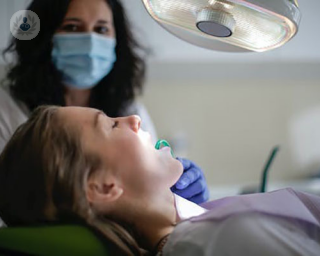

What is salivary gland surgery?
By Mr Ram Moorthy
2024-12-14
In his latest online article, Mr Ram Moorthy gives us his insights into salivary gland surgery. He explains what it is, the different types, what conditions are needed for surgery, the risks involved and the recovery. See more
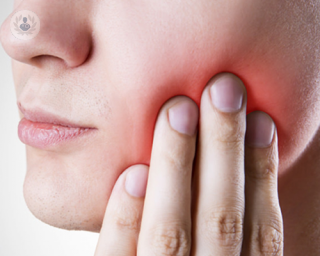

What to expect during and after salivary gland surgery
By Professor Kavin Andi
2024-12-14
Tumours can grow on our salivary glands, either being benign or malignant. In both cases, the tumours have to be removed. Awarded consultant maxillofacial surgeon Professor Kavin Andi explains why the procedure is necessary and what to expect if you undergo the operation. See more
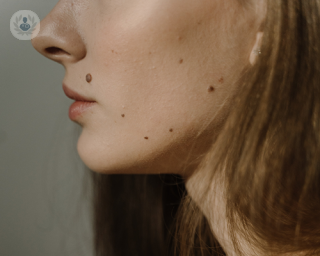

Pain, swelling and numbness: Do I need salivary gland surgery?
By Mr Robert Goddard
2024-12-14
Pain, swelling and numbness are usual symptoms of pathological processes, such as tumours or infections, that affect the salivary glands. To alleviate these symptoms, diagnose conditions and prevent aggravation of these processes, salivary gland surgery may be recommended. Mr Robert Goddard, highly revered consultant oral and maxillofacial surgeon, explains what this procedure entails and what patients can expect afterwards. See more


How are salivary gland stones removed?
By Miss Katherine George
2024-12-14
Leading consultant maxillofacial surgeon, Miss Katherine George, explains the different options available to patients suffering with salivary gland stones. See more
Experts in Salivary gland surgery
-
Professor Neil Tolley
Otolaryngology / ENTExpert in:
- Thyroid gland surgery
- Parathyroid gland surgery
- Robotic surgery
- Salivary gland surgery
- Parotid gland surgery
- Thyroid disorders
-
Mr Luke Cascarini
Oral & maxillofacial surgeryExpert in:
- Temporomandibular joint disorder (TMJ)
- Bruxism
- Facial pain
- Salivary gland surgery
- Impacted tooth
-
Miss Katherine George
Oral & maxillofacial surgeryExpert in:
- Facial reconstruction
- Facelift
- Salivary gland surgery
- Sialendoscopy
- Wisdom teeth
- Orthognathic surgery
-
Professor Kavin Andi
Oral & maxillofacial surgeryExpert in:
- Mouth cancer
- Oral surgery
- Skin cancer
- Head and neck cancer
- Salivary gland surgery
- Facial reconstruction
-
Mr William E. Grant
Otolaryngology / ENTExpert in:
- Salivary gland surgery
- Blocked nose
- Endoscopic sinus surgery
- Endoscopic skull base surgery
- Functional rhinoplasty
- Paediatric ENT
- See all

The Chaucer Hospital - part of Circle Health Group
The Chaucer Hospital - part of Circle Health Group
Nackington Rd, Canterbury CT4 7AR,
No existe teléfono en el centro.
By using the telephone number provided by TOP DOCTORS, you automatically agree to let us use your phone number for statistical and commercial purposes. For further information, read our Privacy Policy
Top Doctors

The ENT Consultancy
The ENT Consultancy
23 Craven Rd, Reading
No existe teléfono en el centro.
By using the telephone number provided by TOP DOCTORS, you automatically agree to let us use your phone number for statistical and commercial purposes. For further information, read our Privacy Policy
Top Doctors

Allura Medical
Allura Medical
Sheffield
No existe teléfono en el centro.
By using the telephone number provided by TOP DOCTORS, you automatically agree to let us use your phone number for statistical and commercial purposes. For further information, read our Privacy Policy
Top Doctors
-
The Chaucer Hospital - part of Circle Health Group
Nackington Rd, Canterbury CT4 7AR,, CanterburyExpert in:
- Hip
- Cataracts
- Orthopaedic surgery
- Ophthalmology
- Knee
-
The ENT Consultancy
23 Craven Rd, Reading , ReadingExpert in:
- Voice disorders
- Ear infection
- Hearing loss
- Adult and paediatric services
-
Allura Medical
Sheffield, SheffieldExpert in:
- Orthognathic surgery
- Facial aesthetics
- Gynaecomastia
- Temporomandibular joint disorder (TMJ)
- TMJ disorders
- Most viewed diseases, medical tests, and treatments
- Nystagmus
- Facial feminisation surgery
- Migraine
- Weight loss injections
- Nipple discharge
- Abdominal pain
- Endovenous laser treatment (EVLA)
- Minimal access surgery (keyhole surgery)
- Head and neck cancer
- Neck lump
